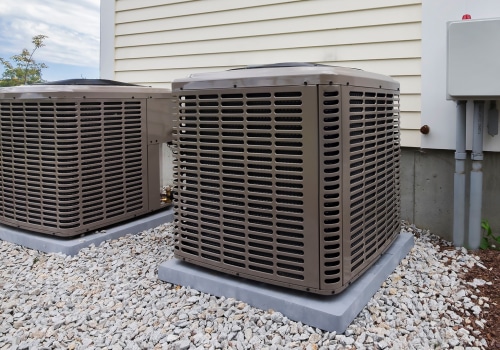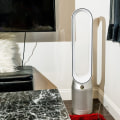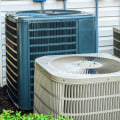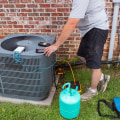The Essential Guide to Replacing Home AC Filters and HVAC Systems
Let's dive into an essential task, swapping out your home's air conditioning filter. Moreover, let's also explore recognizing when to upgrade your entire HVAC system.
Regular filter changes do more than just extend your system's lifespan. Improved indoor air quality, enhanced efficiency, and money saved are other benefits. With overworked filters, system failures and hefty repair costs may be in your future, certainly not what anyone desires. Dust accumulation or rising energy bills without clear reasons could signal it's time for a filter change.
Curious about when to contemplate a full HVAC replacement? Signs could include costly or frequent repairs, unexplained noises, as well as fluctuating temperatures. Bear in mind that, the priciest doesn't always mean the best. Striking a balance between cost, efficiency, and comfort is crucial. While we've touched on some key points, there's a wealth of knowledge yet to be uncovered.
Key Takeaways
Ensuring timely replacement of home air conditioning filters enhances HVAC efficiency along with indoor air quality.
Signs of an aging HVAC system include high utility bills, recurrent repair needs, and warranty expiration.
Factors such as energy efficiency, pricing, and comfort should weigh in while making HVAC replacement decisions.
Filters of high efficiency might raise initial expenditure, yet they contribute to reduced energy consumption and better air quality.
Well-timed replacement of filters and regular maintenance of HVAC systems can lead to noticeable energy conservation and increased comfort.
Understanding Your HVAC System
Before delving into details concerning HVAC replacement and air conditioning filters, you need a firm understanding of your domicile's HVAC system. This abbreviation stands for Heating, Ventilation, and Air Conditioning, and represents your home's indoor comfort nucleus. It manages not only temperature control in your dwelling but also the air quality you inhale.
Grasping your HVAC system's workings proves essential for maintaining it. Familiarize yourself with foundational components, their functions, and their collective operation. The main parts encompass the furnace, air conditioner or heat pump, ductwork, plus thermostat. Consistent upkeep of HVAC equipment can forestall major breakdowns, enhance operational efficiency, and lengthen your system's useful life.
Mastering system troubleshooting is equally vital. This skill allows you to identify prevalent problems, such as a dysfunctional thermostat or blocked filter. Early recognition of these warning signs prepares you for prompt action, whether performing minor repairs yourself or summoning a professional. Note that a properly functioning HVAC system not only assures your home's comfort but also fosters a healthier living environment.
Importance of Regular Filter Replacement
Grasping the basics of your HVAC system leads to recognizing the importance of consistent filter replacement. This task impacts both the durability of your filter and your health.
Reflect on the lifespan of your filter. By replacing it regularly, we prevent overburdening and premature wearing out. When filters are overworked, HVAC systems may malfunction, leading to costly repairs or replacements.
Never underestimate the health implications of dirty filters. Over time, they gather dust, allergens, and airborne particles. Without regular replacement, these harmful particles may recirculate in your home, potentially triggering or exacerbating respiratory problems.
Now, let's highlight some key points regarding the importance of consistent filter changes:
Consistent replacement prolongs the durability of your filter, saving money in the long run.
Improved air quality in your home results from changing your filter, reducing potential health risks.
Clean filters allow HVAC systems to operate more efficiently, conserving energy and reducing your bills.
Signs Your Filter Needs Changing
Recognizing when your filter requires a switch is essential due to the significance of routine replacements. Usually, the duration of the filter's service provides a reliable clue. If several months have passed since the last replacement, you might need a fresh one. However, don't depend solely on time, there are additional indicators to be alert to.
Have you observed an increase in dust around your living space? This could be a clue. Filters clogged with dirt are less effective at trapping dust particles, allowing them to circulate within your home. Also, if energy bills start to rise without an obvious cause, the fault may lie with an exhausted filter. Your system exerts more effort when filters are blocked, leading to increased energy consumption.
Above all, monitor any allergy symptoms. Increased sneezing, coughing, or eye irritation experienced by you or your family may indicate the need for a filter check. Filters laden with dirt fail to eliminate allergens from the air, causing heightened symptoms. Let's not forget that maintaining a clean filter is crucial for ensuring excellent indoor air quality. Stay vigilant for these indicators, and you'll know when a filter change is due.
Steps to Replace Air Conditioning Filters
Now that you're aware of the signs indicating your air filter needs changing, let's move on to the actual filter replacement.
First off, you'll need to find where your filter is located in your system.
After that, we'll guide you through the correct installation of your new filter.
Identifying Filter Location
Identifying the position of your air conditioning filter within the HVAC system is a necessary first step before replacement. Each HVAC system type has a unique filter location, making its accessibility crucial for effective maintenance.
Commonly, one can find this filter in one of three areas:
Concealed behind the return air grille on a wall or ceiling.
Nestled within the blower compartment of the HVAC system.
Positioned in a slot on the side, bottom, or top of your furnace.
Locating this filter eases future replacements. Bear in mind that filter positions can vary across different HVAC systems. Consult the manual for your system should any difficulty arise in this process. Taking your time to correctly ascertain the location of the filter is advised.
Proper Filter Installation
Identifying the location of your air conditioning filter paves the way for proper replacement.
Begin with filter sizing, crucial for your unit. Having the right size is essential as small filters fail to trap pollutants effectively, whereas oversized ones may lead to system damage.
Before installation, switch off your cooling system to ensure safety. Proceed with removing the old filter, and replacing it with a fresh one that fits snugly. Bear in mind the airflow direction, usually indicated on the filter frame.
Upon replacing the cover, switch on your cooling unit. Should there be any operational issues, seek assistance from a professional.
Regular filter replacements contribute significantly to efficient cooling and improved air quality.
When to Consider HVAC Replacement
Puzzled about the right time to think about HVAC system replacement? Determining this isn't always straightforward. Yet, some distinct signs suggest your system might require replacement.
Firstly, warranty plays a pivotal role. When your HVAC system's warranty expires, repairs could become expensive and not necessarily justifiable, especially with aging systems. Economically, opting for a system replacement over repair could be more beneficial.
Secondly, focusing on energy savings is crucial. Unusually high energy bills might be a result of inefficiencies in your HVAC system. Opting for a new, energy-efficient model can drastically reduce your monthly bills, resulting in long-term savings.
Three signs suggesting the replacement of your HVAC system include:
Frequent repairs: When your system needs regular maintenance, replacing it could save more.
Odd noises: Unusual sounds might point towards serious issues.
Uneven temperatures: Overly hot or cold rooms indicate your system mightn't be functioning effectively.
Frequently Asked Questions
What Types of Air Conditioning Filters Are There on the Market?
Various types of air conditioning filters exist on the market, each showcasing unique material differences. Examples include fiberglass and pleated filters, each boasting distinct energy efficiency ratings. Selecting what suits your requirements remains crucial.
How Can I Reduce the Frequency of Needing to Change My HVAC Filter?
Enhancing filter maintenance can decrease the frequency of HVAC filter replacement. This involves regular cleaning alongside seasonal adjustments. During seasons of high pollen, for instance, consider opting for filters with greater MERV ratings.
Can I Clean and Reuse My HVAC Filter Instead of Replacing It?
Indeed, cleaning HVAC filters is possible, yet not always advisable. Various methods exist for filter cleaning, each potentially lessening efficiency. Notable drawbacks of reusing filters include compromised air quality and added load on your system.
How Does the Quality of the Air Conditioning Filter Impact the Efficiency of the HVAC System?
Your HVAC system's efficiency directly links to air conditioning filter quality. Such a filter, when of superior quality, can extend system longevity while mitigating health risks by more proficiently filtering harmful particles. Hence, making a wise choice becomes all-important.
Are There Any Specific Brands of HVAC Systems or Filters That Are Recommended for Long-Lasting Performance?
Yes, specific brands might provide extended durability. However, enduring performance often relies more on consistent maintenance of HVAC systems, not just on brand reputation. Additionally, selecting appropriate filter materials significantly influences efficiency.
Learn more about HVAC Care from one of our HVAC solutions branches…
Filterbuy HVAC Solutions - Miami FL - Air Conditioning Service
1300 S Miami Ave Apt 4806 Miami FL 33130
(305) 306-5027











